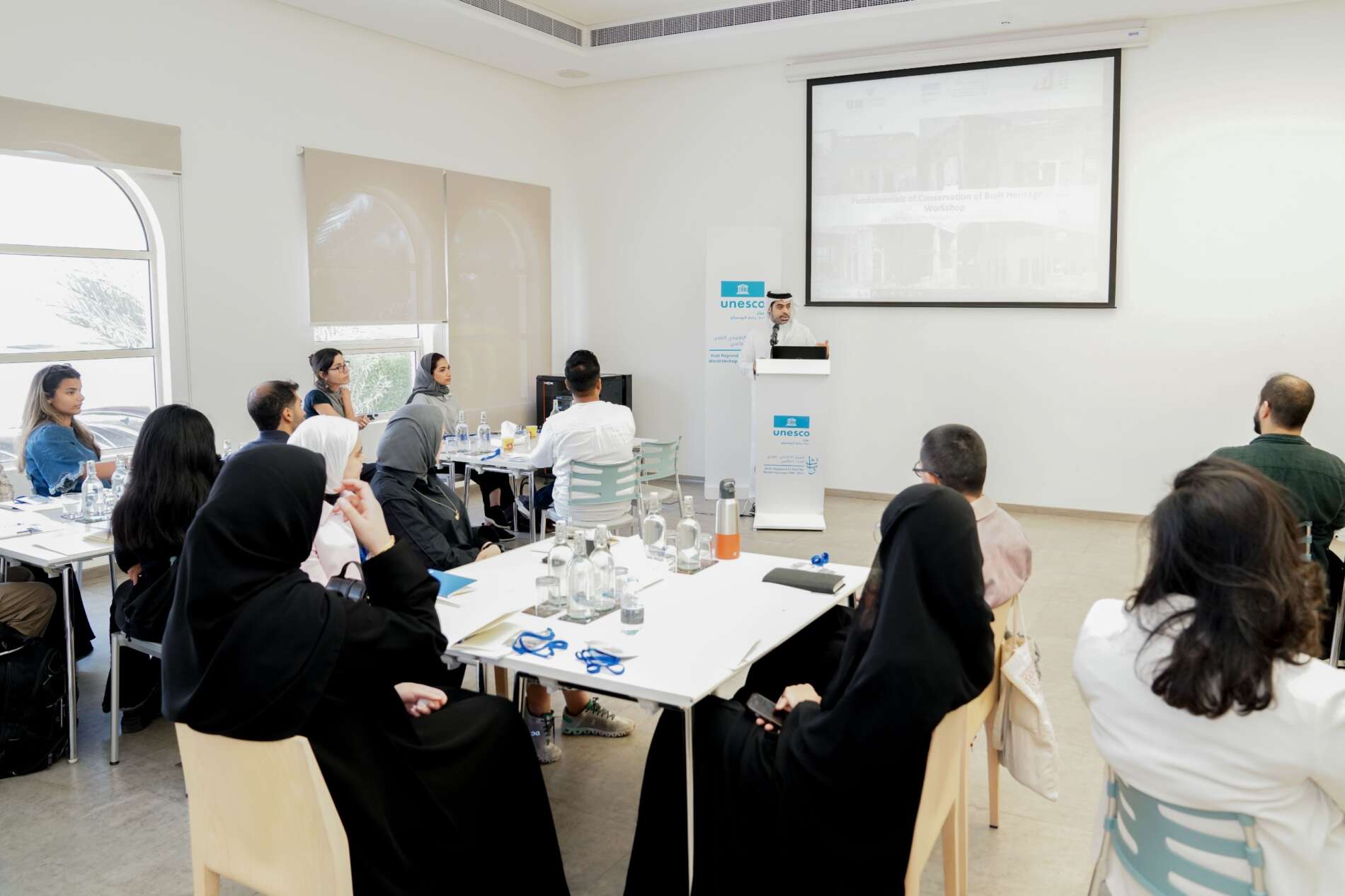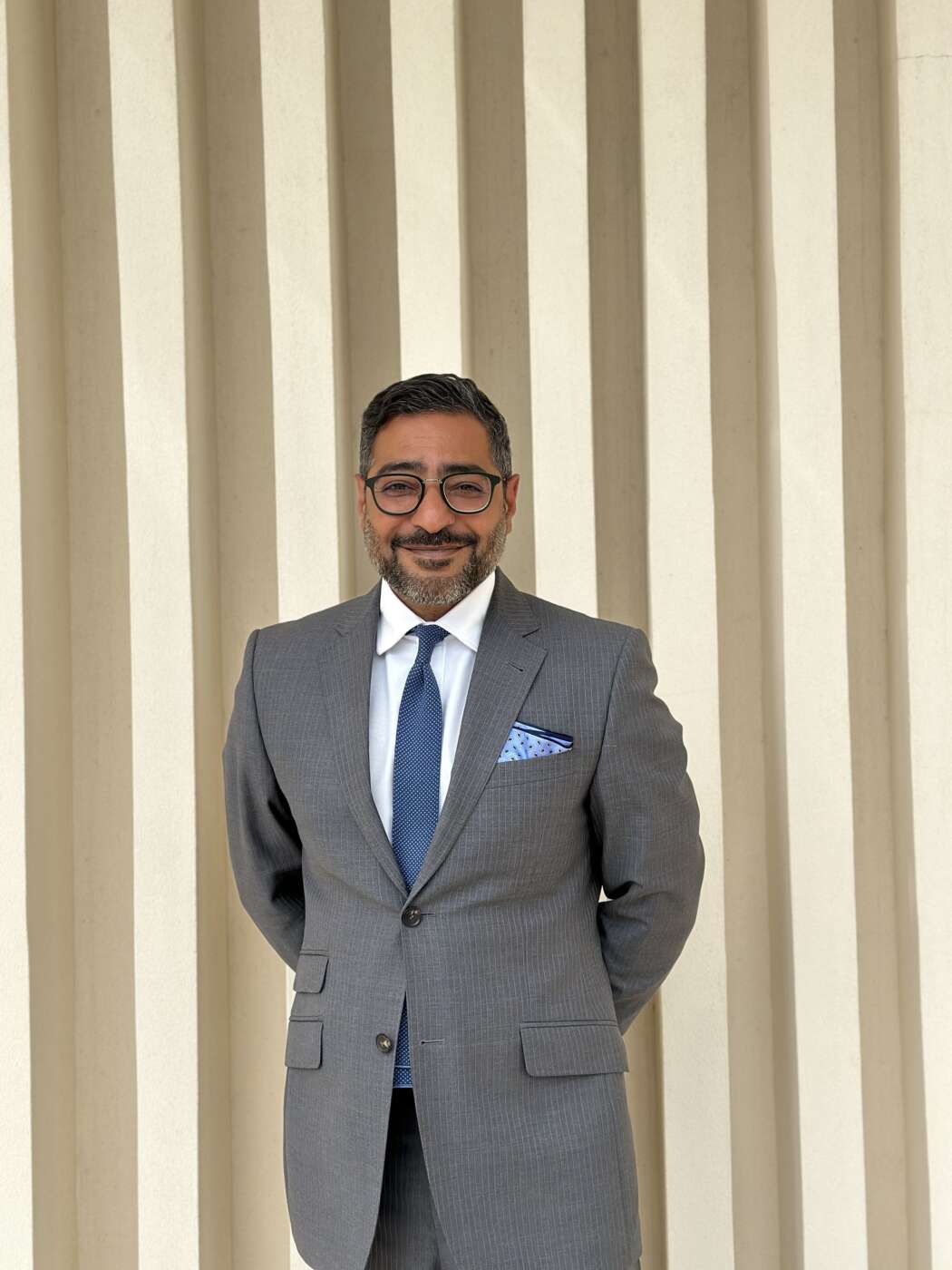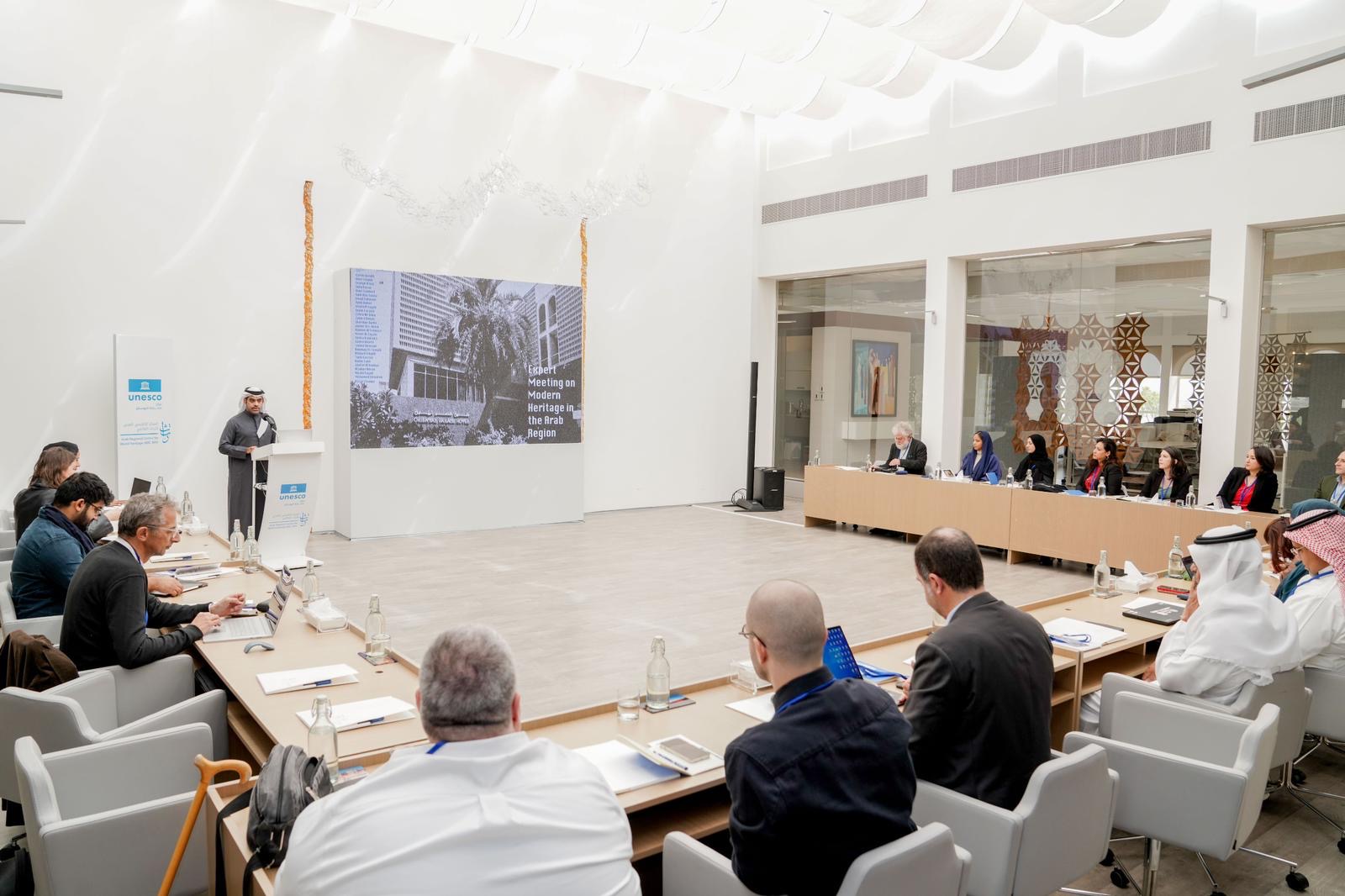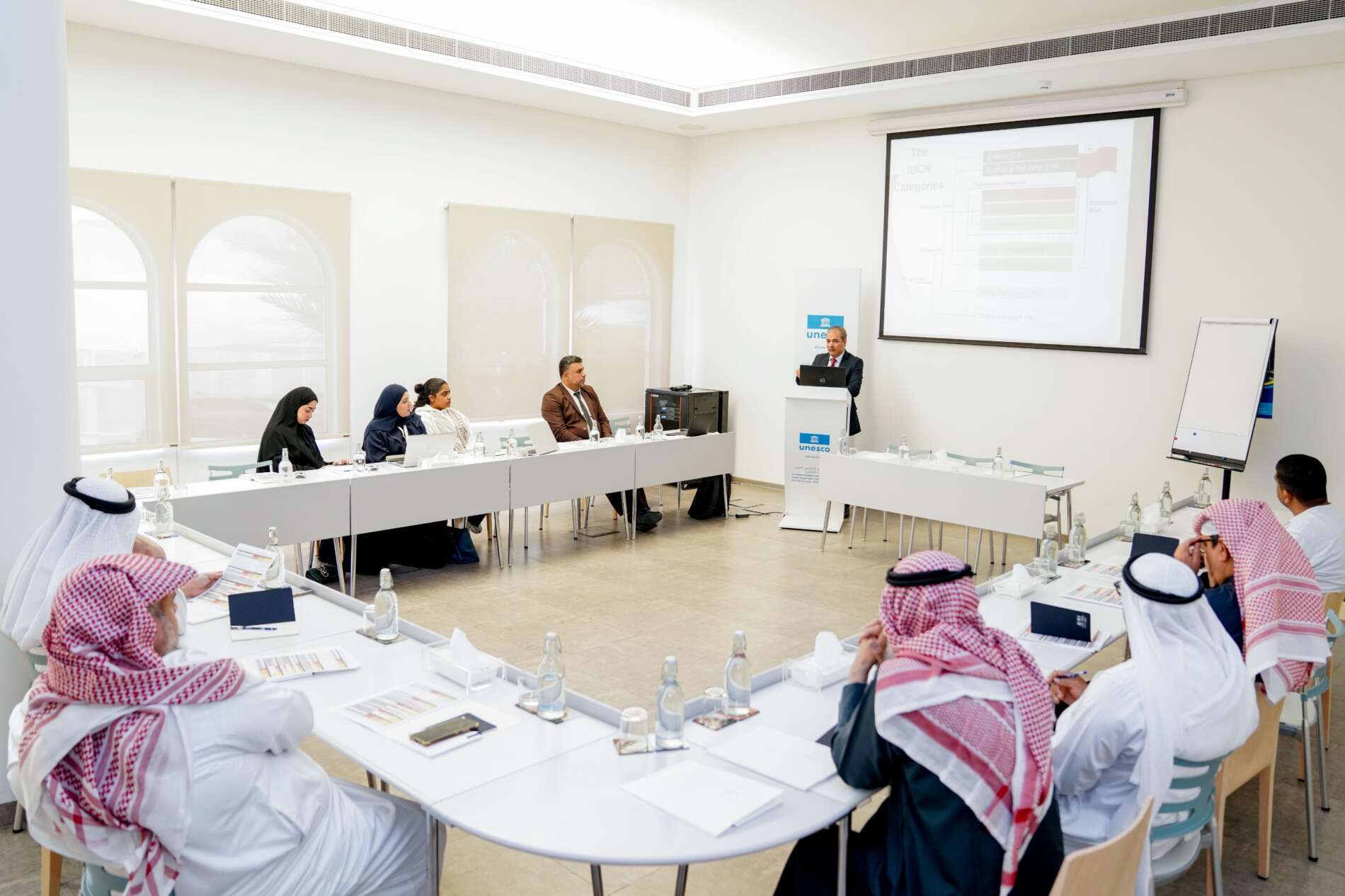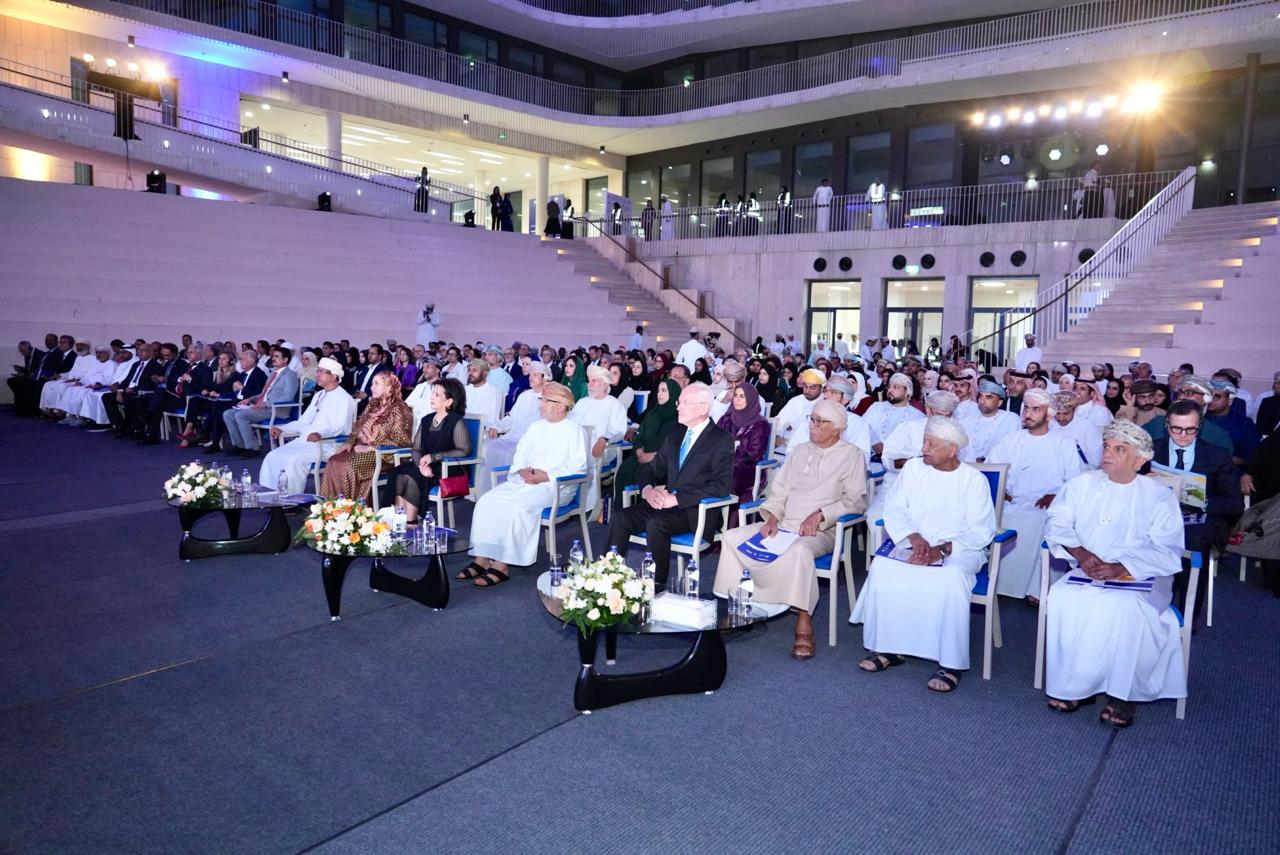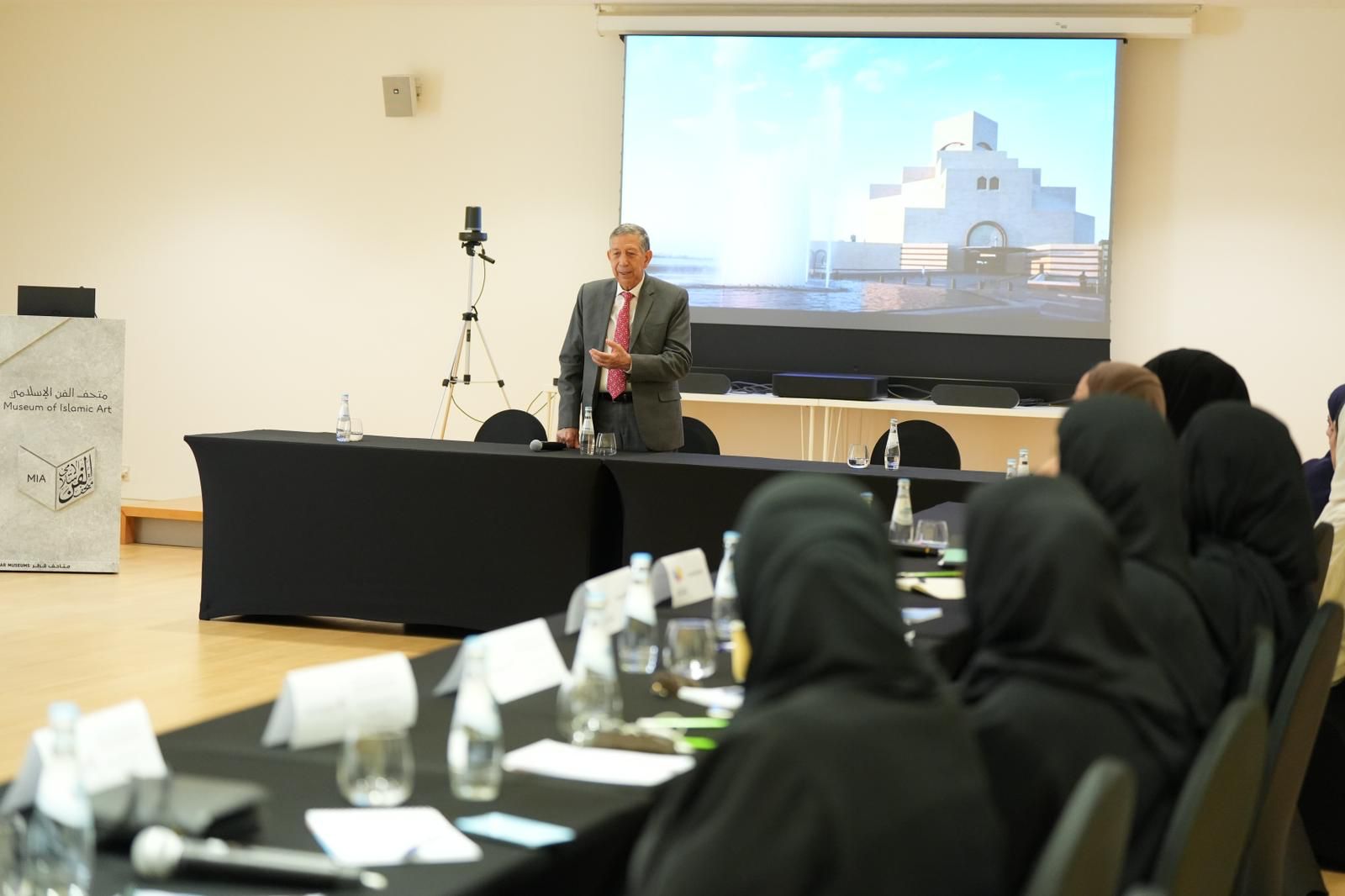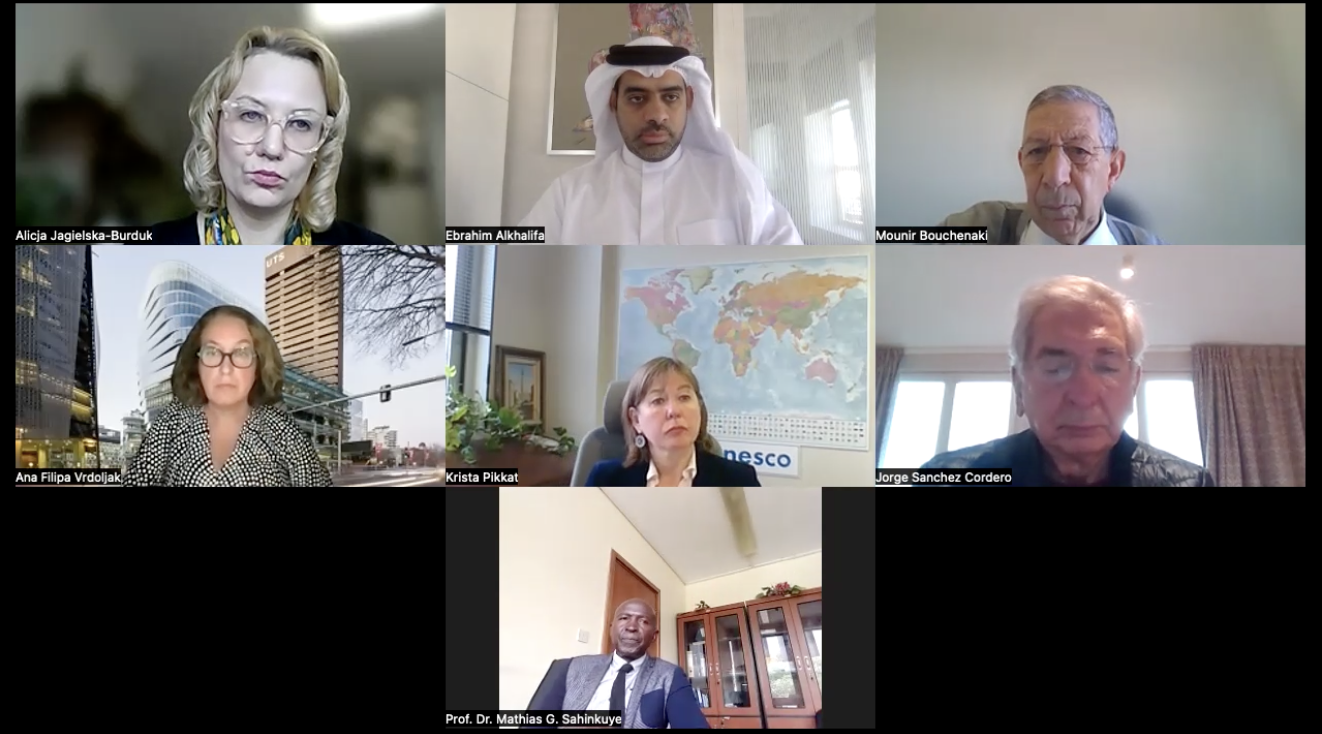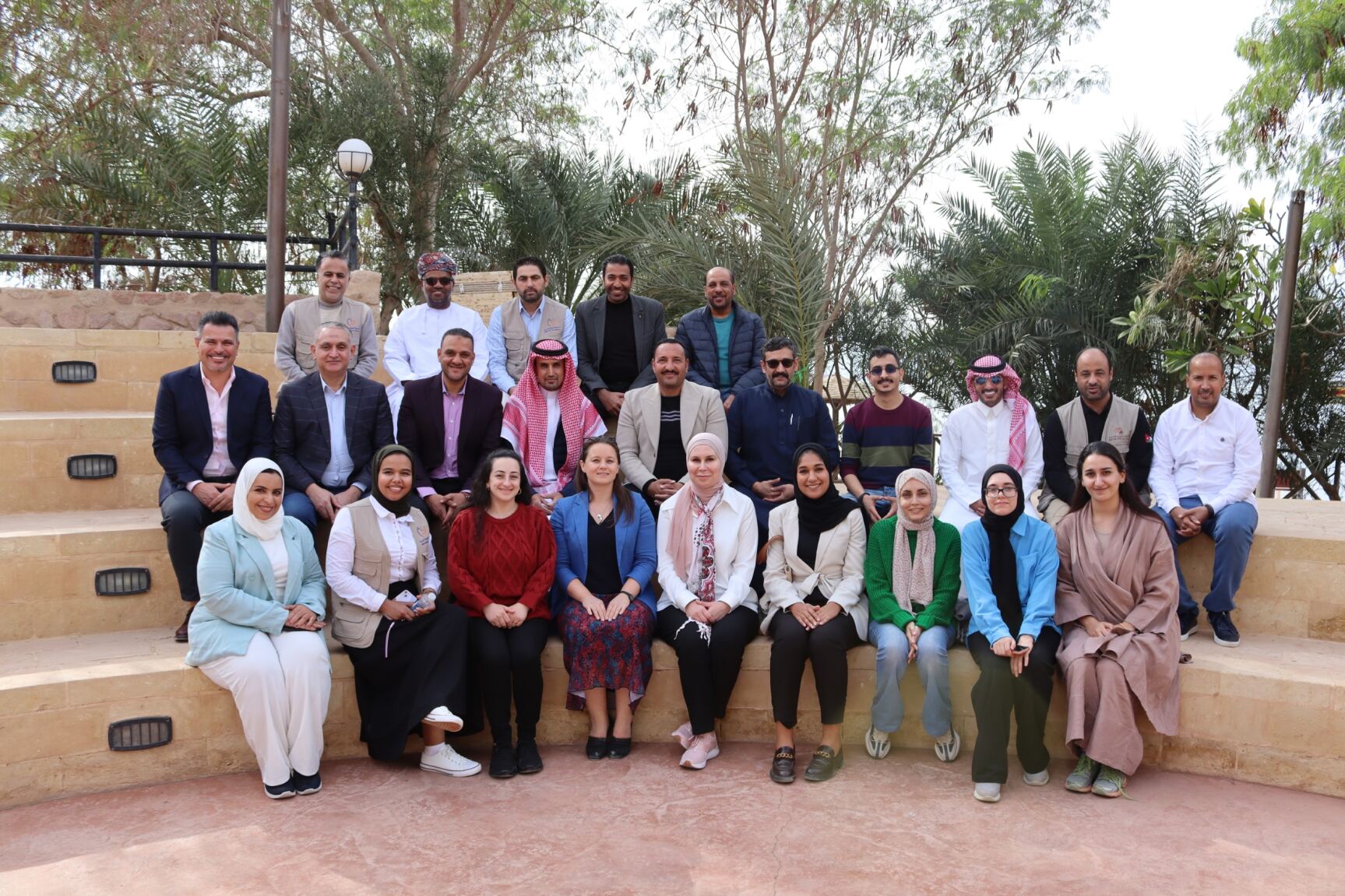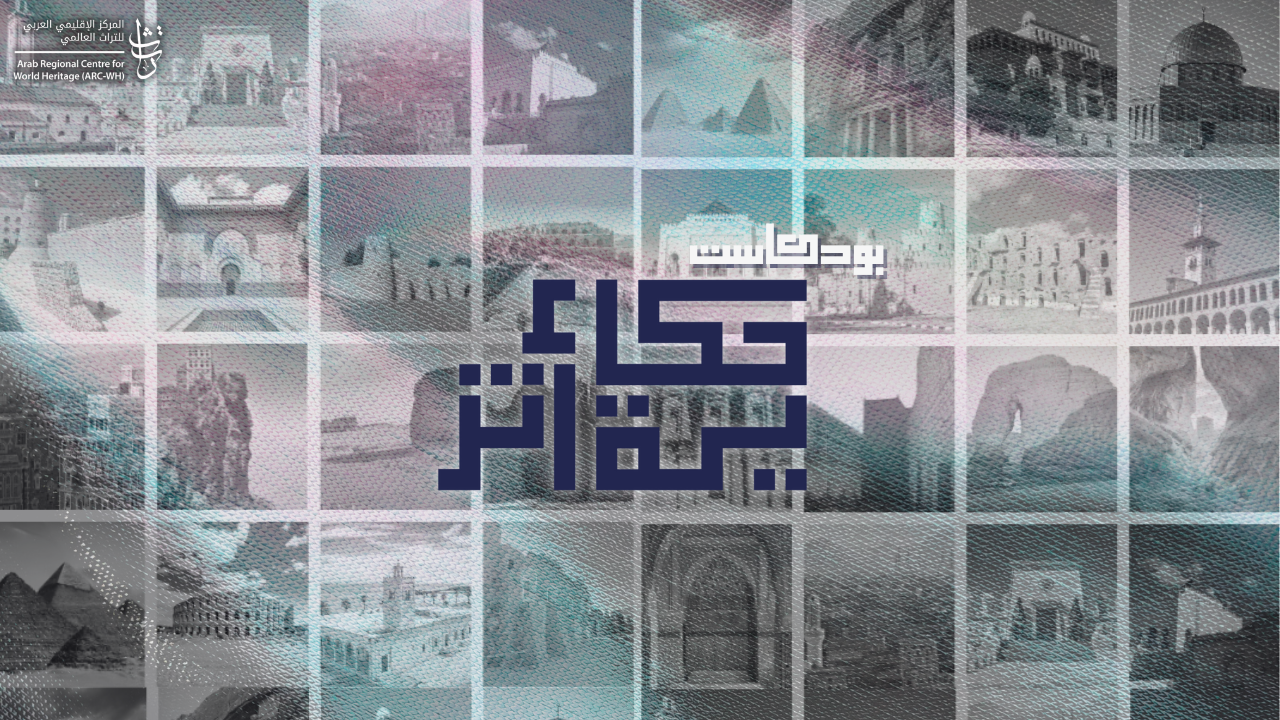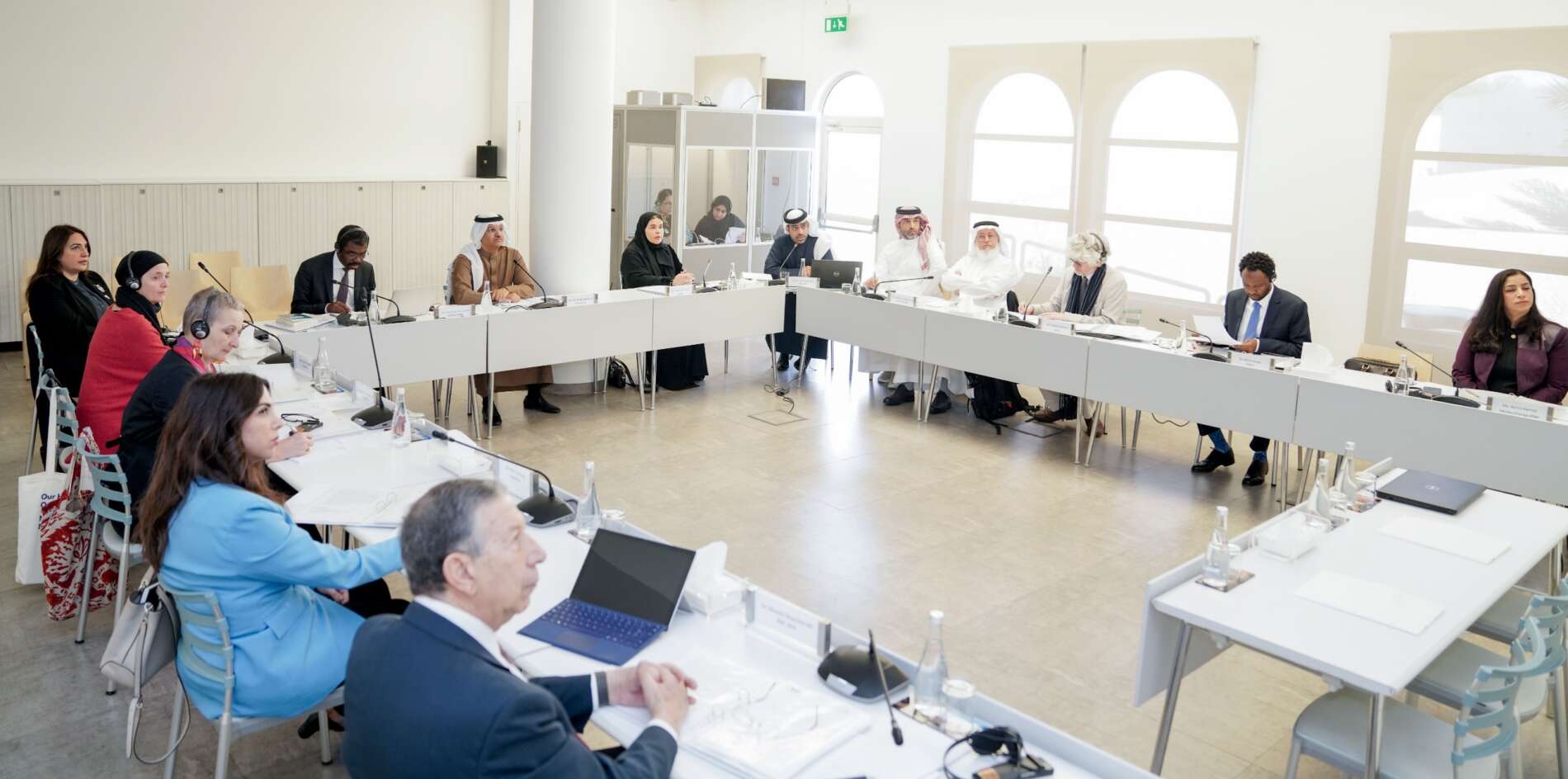
Organisation of the 13th Governing Board Meeting for the Arab Regional Centre for World Heritage
The thirteenth meeting of the Governing Board of the Arab Regional Centre for World Heritage (ARC-WH) was held Monday 12 February 2024. The meeting was attended by His Excellency Sheikh Khalifa bin Ahmed bin Abdullah Al Khalifa, Chairman of the Centre’s Governing Board, Mr. Lazare Eloundou Assomo, Director of the UNESCO World Heritage Centre, and representatives from the International Council on Monuments and Sites (ICOMOS), the International Centre for the Study of the Preservation and Restoration of Cultural Property (ICCROM), the International Union for Conservation of Nature (IUCN), and the African World Heritage Fund, in addition to representatives from the Ministry of Foreign Affairs of the Kingdom of Bahrain, the Kingdom of Saudi Arabia, the Lebanese Republic, and the State of Qatar.
On this occasion, His Excellency Sheikh Khalifa bin Ahmed bin Abdullah Al Khalifa said, “We are pleased to convene the meeting of the Governing Board of the Arab Regional Centre for World Heritage here in the Kingdom of Bahrain with the presence of all parties. This is a real opportunity to reaffirm the importance of continuing cooperation with our regional and international partners to enhance the status of both tangible and intangible heritage for the well-being of our societies.” He added, “Today, we gather as World Heritage sites hold greater significance in various countries, yet they still face numerous dangers and challenges, especially those related to climate, natural disasters, urban expansion, and human conflicts,” stressing that the Center’s commitment extends beyond heritage preservation to include supporting local communities in these areas, emphasizing the importance of heritage as a key driver for sustainable development and social peace.
He further noted that the past year witnessed significant achievements for Arab heritage, as Saudi Arabia successfully hosted the forty-fifth session of the World Heritage Committee, during which three sites entered the World Heritage List: ‘Uruq Bani Ma’arid inj Saudi Arabia as a natural site, Djerba Island in Tunisia, and Tel Al-Sultan in the historic city of Jericho in Palestine as cultural sites. Additionally, the World Heritage Committee inscribed the Rachid Karami International Fair in Tripoli, Lebanon, and the Ancient Landmarks of the Sabean Kingdom in Marib, Yemen, on the World Heritage List.
The meeting also addressed many current and future issues related to World Heritage in the Arab world and ways in which the Centre can contribute to its enhancement and preservation. The Centre presented its activities and programs, including workshops, public events, lectures, and technical support for Arab countries.
The meeting also discussed the Executive Work Plan for 2024, which aligns with the Centre’s role in protecting cultural and natural heritage in the Arab world, focusing on the new challenges facing heritage and effective ways to address them within the framework of the 1972 World Heritage Convention and other relevant agreements.
The Arab Regional Centre for World Heritage was established in 2012 as a Category 2 Centre under the auspices of UNESCO, based on the agreement signed in 2010 between the Government of the Kingdom of Bahrain and UNESCO. The Centre coordinates with various international organizations concerned with heritage to preserve and safeguard cultural and natural World Heritage in the Arab world, assist Arab member states in implementing the 1972 World Heritage Convention, build the capacities of Arab experts working in the field of World Heritage, and raise awareness about the importance of preserving cultural and natural heritage in Arab countries through diverse programs such as workshops, lectures, exhibitions, conferences, publications, and translation of studies and books.

